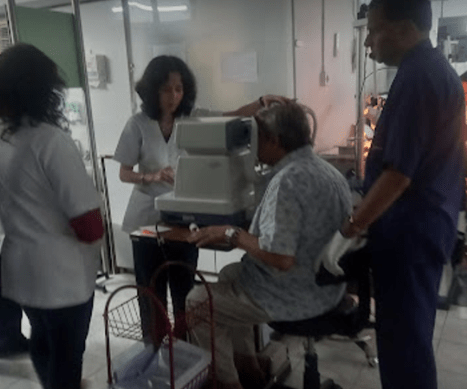Planning an Eye Surgery? Important Guidelines to Follow For Eye Surgeries During Conjunctivitis Outbreak

Introduction: The Current Health Climate in Pune
The city of Pune has recently experienced a sharp rise in cases of conjunctivitis, with over 8,000 instances reported in the past month alone. Experts believe that the outbreak is due to a combination of factors: the recent monsoon rains, which have resulted in heightened humidity levels, and the commencement of the school year, causing increased social interaction. If you’re contemplating eye surgery in these times, there are several key considerations to bear in mind.

Eye Surgery Explained
Eye surgery is a medical procedure that involves making incisions within the eye. This type of surgery aims to correct vision problems such as near-sightedness, farsightedness, and astigmatism. Additionally, eye surgery can also address and treat eye diseases like cataracts and glaucoma. It is of utmost importance to follow your doctor’s guidelines meticulously, both before and after the procedure, to ensure a safe and successful surgical outcome. This becomes even more critical if you are currently suffering from conjunctivitis, also commonly known as pink eye.
Understanding Conjunctivitis
Conjunctivitis is the inflammation of the conjunctiva, which is the thin, transparent layer lining the inner surface of the eyelids and covering the white part of the eye. This condition can be triggered by a virus, bacteria, or even an allergy. The symptoms of conjunctivitis can range from redness and swelling to itching, burning, discharge, and even pain. If you suspect you have conjunctivitis, it’s imperative to consult a doctor for an accurate diagnosis and effective treatment. Depending on the root cause, you may be prescribed antibiotics or antiviral medications to combat the infection.
The Intersection of Conjunctivitis and Eye Surgery
Patients who are dealing with conjunctivitis are generally not good candidates for eye surgery. The reason is that having conjunctivitis can substantially elevate the risk of infections and complications during and after the surgical procedure. The infection could potentially spread to the other eye or different parts of the body. Moreover, the condition can make it challenging for the surgeon to see clearly during the operation. If you’re diagnosed with conjunctivitis, you’ll need to wait until the condition is completely resolved before undergoing any form of eye surgery, which could take anywhere from a few days to a few weeks.
Important Tips for Conjunctivitis Patients Considering Eye Surgery
If you have conjunctivitis and are pondering eye surgery, consider these vital tips:
- Inform Your Doctor: It’s crucial to disclose your condition to your healthcare provider, as this will enable them to properly assess any risks and ensure that you receive the best care possible.
- Follow Prescribed Treatments: Adhere strictly to your doctor’s recommendations for treating your conjunctivitis. Doing so will hasten your recovery and clear the infection more quickly.
- Wait Until You’re Fully Recovered: Make sure your conjunctivitis is completely cleared before proceeding with eye surgery, as this will reduce the likelihood of infection and complications.
For specialized advice and treatment, consider visiting an eye hospital in Pune, where a team of qualified doctors can assist you with conjunctivitis and other eye health disorders.
Types of Eye Surgeries You Might Consider
- LASIK Surgery: This is a laser-based eye surgery designed to correct vision issues such as near-sightedness, farsightedness, and astigmatism by reshaping the cornea. For more information visit our page on Lasik surgery in Pune.
- Cataract Surgery: This surgery involves removing the eye’s cloudy lens and replacing it with an artificial one. Also called, ‘Motibindu’ in Hindi and Marathi, cataracts are a common issue that can obstruct vision. For more details, visit our page on Motibindu in English.
- Glaucoma Surgery: This procedure aims to lessen the internal pressure within the eye, which if left untreated, can damage the optic nerve and result in vision loss.
- Squint Surgery: This surgical intervention aims to correct misaligned eyes, a condition where the eyes do not focus in the same direction.
- Retina Surgery: This surgery is intended to repair or replace the retina, which is the light-sensitive tissue at the back of the eye. Retinal detachment is a serious condition that can result from a damaged retina.
Conclusion
If you’re considering eye surgery amidst the current conjunctivitis outbreak in Pune, it’s important to consult healthcare professionals for individualized advice. Following best practices can significantly reduce risks and lead to a successful surgical outcome.
Disclaimer
The information provided in this article is intended for informational purposes only and should not be construed as medical advice. Always consult with a qualified healthcare professional for diagnosis and treatment, especially if you are experiencing symptoms of conjunctivitis or are considering eye surgery.







